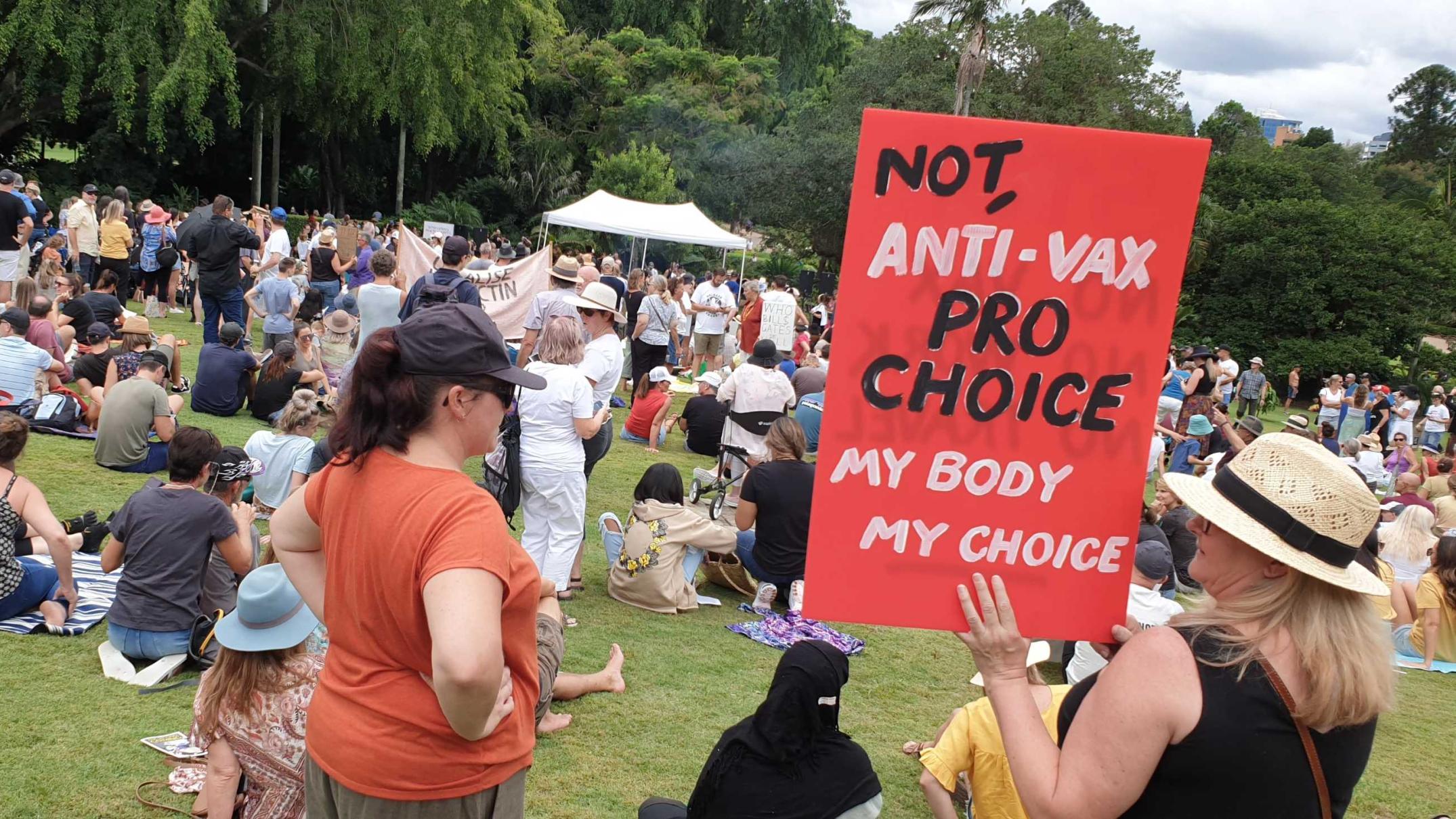Several thousand people have joined anti-vaccination protests across Australia, ahead of the country rolling out its coronavirus inoculation program next week.
Key points:
- Thousands of people join anti-vaccination protests in capital cities around Australia
- Police arrest several people in Melbourne
- Australia’s COVID-19 vaccination rollout is set to begin on Monday
The protests, organised by Australian vs The Agenda, were largely peaceful but police made several arrests in Melbourne.
The coordinated rallies were held only two days out from Australia beginning its COVID-19 vaccination program.
The Pfizer vaccine has arrived in the country and the Therapeutic Goods Administration (TGA) has recently given the Oxford University-AstraZeneca jab the tick of approval.
The group claims to represent “everyday Aussies who have been oppressed, arrested and charged by a tyrannical Australian Government”.
The Melbourne event attracted about 500 people at Fawkner Park in South Yarra. It started peacefully with speakers expressing their opposition to the vaccine and criticising Victorian Premier Daniel Andrews.
The crowd marched onto St Kilda Road and towards the Alfred Hospital before police intervened and arrested a number of protesters.
Police said 15 people would receive penalty notices for breaching the state’s COVID-19 laws.
Five others have been charged on summons for resisting arrest, hindering police and refusing to provide details.
Meanwhile, in Brisbane, more than 1,000 protesters gathered in the Botanic Gardens.
Many protesters carried placards that read “my body, my choice” and “we don’t need no vaccination, we don’t need no crowd control”.
In Adelaide, several hundred protesters marched through the city and gathered on the steps of South Australian Parliament.
They said they were against “enforced COVID-19 vaccinations”.
Australia’s plan is to vaccinate the entire population by October.
The jabs, which have undergone rigorous safety checks, are free but it is not mandatory for people to have them.
A recent survey by the Federal Health Department found many Australians will not get a coronavirus jab as soon as it is available.
According to the survey of 4,000 people, 48 per cent said they would get the vaccine as soon as it was available, while 71 per cent said they would choose to have it by October.
Secretary of the Health Department, Brendan Murphy, has said the majority of Australians will get the AstraZeneca vaccine, while the Pfizer version will be prioritised for those at higher risk, including frontline workers and those living in aged care facilities.
“I’ll be getting AstraZeneca vaccine — and will be lining up for it with great enthusiasm,” Professor Murphy said.
Mr Morrison, who will get the Pfizer jab, said he would take the advice of medical experts.
“I think it’s very important we show — I personally show — this is something we should do,” he said.




